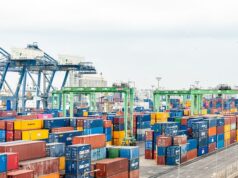The Philippine Bureau of Customs (BOC) is reiterating an order for importers and customs brokers to accurately describe imported goods in tariff terms, saying penalties will be imposed on violators.
All district and sub-port collectors and formal entry chiefs and personnel must ensure strict compliance with the proper description of imported goods, said Import Assessment Services officer-in-charge Diogenes Cenita in a memorandum. This means imported articles should be specifically described as provided under Customs Administrative Order (CAO) No. 8-2007 (Description of Imported Articles in Tariff Terms) and Customs Memorandum Order (CMO) No. 28-2007 (Implementing CAO No. 8-2007 entitled Description of Imported Articles in Tariff Terms).
Cenita requested concerned offices to remind importers, exporters, customs brokers, and customs officials that “persistent violations in declaring and finding the imported articles/goods in general description shall be penalized” under CAO 8-2007 and CMO 28-2007.
He cited a memorandum dated June 26, 2015 issued by then customs commissioner Alberto Lina that also reiterates strict compliance with the two orders.
READ: BOC to strictly enforce penalties on use of generic import description
In his memo, Lina said his office “has verified reports that numerous imported goods were declared in general manner to avoid proper classification and valuation or that description of articles in the import declarations were not sufficient in detail to enable the article to be identified for tariff classification, valuation and other statistical purposes.”
Impact on proper duty collection
Lina said generalized descriptions would adversely impact BOC efforts to establish or publish values, and collect the proper duties and taxes from imported goods.
BOC in early 2014 revived the two orders which had previously been unenforced for seven years. In March 2014, 70 traders and 45 customs brokers were suspended for describing imported articles in general terms in violation of the two orders. BOC lifted the suspension more than a week after.
CMO 28-2007 requires importers to make detailed descriptions of imported articles in tariff terms, or their shipments would go through 100% examination. The order aims to foil attempts by importers to evade paying the right tariff by simply giving generic descriptions to their imports.
Under the CMO, the description of articles must be “in sufficient detail to enable the article to be identified for tariff classification, valuation and other statistical purposes.”
Descriptions should be specific, such as centrifugal for pumps, diesel for engines, skimmed for milk, and shoulder for bags. The brand and model or style of the articles, capacity, quality, grade, process, and retail packaging must also be indicated.
CMO 28-2007 will be the basis for encoding Box 31 of the Import Entry and Internal Revenue Declaration (IEIRD), and for preparing the packing list, commercial invoices, entry declaration, and Value Reference Information System and Classification Rulings. It will likewise be used to accomplish the IEIRD returns by the COO IIIs and COO Vs and to describe items for establishing or publishing values and for statistical purposes.
For motor vehicles, meanwhile, members of the Chamber of Automotive Manufacturers of the Philippines Inc., participants in the Motor Vehicle Development Program, and other importers who are authorized distributors of specific car brands should indicate on the packing or list the chassis and engine number.
The BOC lists 120 items that are generally declared by importers and that are now to undergo 100% examination to determine their conformity to the provisions of CAO 8-2007.
Failure to describe the shipment in detail will be the full responsibility of the importer or broker, according to CMO 28-2007. “Good faith is not a defense. Both importers and customs brokers shall exercise utmost diligence in declaring goods for purposes of customs clearance.”
Violators will be given a warning on their first offense, have their accreditation suspended for six months on second offense, and have their accreditation cancelled and name blacklisted on third offense. – Roumina Pablo
Image courtesy of alexisdc at FreeDigitalPhotos.net









